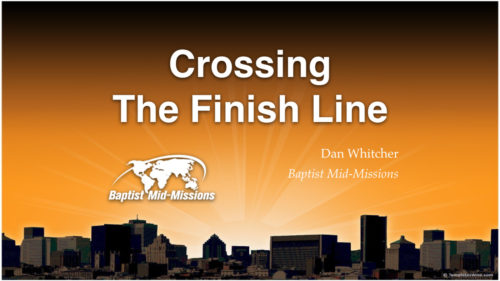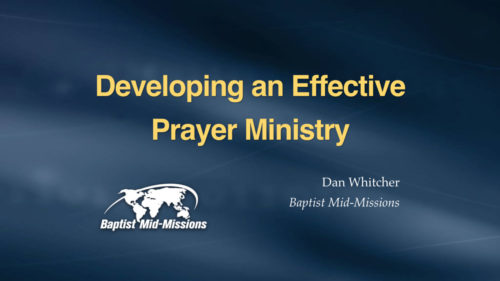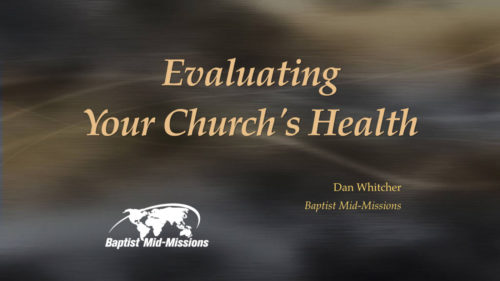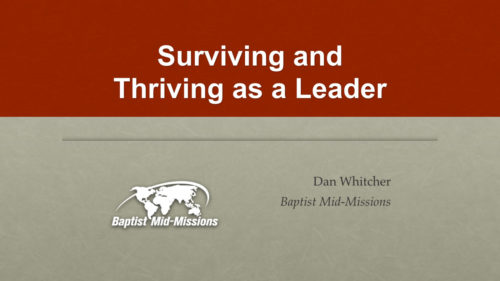-
Sale!

School of Church Plant – Track 2 (All 26 Video Sessions)
$225.00$150.00Each Session is about an hour long. All 26 Video Sessions are included with this purchase. MP4 Video Format. -
Sale!

School of Church Planting – Track 1 (all 27 sessions)
$220.00$150.00
-
 Teams are the preferred approach to ministry in the Bible. Every person has a ministry S.H.A.P.E. that suits him or her for particular areas of ministry. People serve best when given a ministry slot that corresponds to their shape
Teams are the preferred approach to ministry in the Bible. Every person has a ministry S.H.A.P.E. that suits him or her for particular areas of ministry. People serve best when given a ministry slot that corresponds to their shape -
 Values are those core beliefs that distinguish a church and anchor it in the Word God. Vision is a clear and challenging picture of the future as you believe it can and must be. Together values and vision drive the ministry of the church forward.
Values are those core beliefs that distinguish a church and anchor it in the Word God. Vision is a clear and challenging picture of the future as you believe it can and must be. Together values and vision drive the ministry of the church forward. -
 People value that which is costly. People do not value church membership because it costs them nothing. Raise the membership bar, require pre-membership classes, and clearly outline what is expected of those who join the church.
People value that which is costly. People do not value church membership because it costs them nothing. Raise the membership bar, require pre-membership classes, and clearly outline what is expected of those who join the church. -
 Research reveals that churches quickly experience “evangelistic entropy” and fall into a maintenance mode of ministry. This session shows how to raise the evangelistic temperature of your church while designing healthy evangelistic systems and strategies. Pastors must model evangelism, equip/train their people to live “sent” lives and plan effective evangelistic events that are “invite-worthy.”
Research reveals that churches quickly experience “evangelistic entropy” and fall into a maintenance mode of ministry. This session shows how to raise the evangelistic temperature of your church while designing healthy evangelistic systems and strategies. Pastors must model evangelism, equip/train their people to live “sent” lives and plan effective evangelistic events that are “invite-worthy.” -

-

-

-

-
 Growing churches are marked by a robust network of small groups. How do leaders design a small group system that serves the mission of the church and binds the congregational together relationally? After showing that small groups are biblical and bring many practical benefits, this session gives lots of practical recommendations for designing and improving a church’s small group ministry with a goal of multiplying both group leaders and community groups. Many options and types of groups are explored.
Growing churches are marked by a robust network of small groups. How do leaders design a small group system that serves the mission of the church and binds the congregational together relationally? After showing that small groups are biblical and bring many practical benefits, this session gives lots of practical recommendations for designing and improving a church’s small group ministry with a goal of multiplying both group leaders and community groups. Many options and types of groups are explored. -
 Churches must chose to be either a missions supporting church or a sending church. This session focuses on the 12 marks of a missions active sending church, giving lots of recommended resources for leaders to implement that vision. Topics explored include developing a missions strategy, writing a church missions policy, recruiting a missions team to give leadership, planning exciting mission conferences, caring for missionaries, and training missionary candidates in-house.
Churches must chose to be either a missions supporting church or a sending church. This session focuses on the 12 marks of a missions active sending church, giving lots of recommended resources for leaders to implement that vision. Topics explored include developing a missions strategy, writing a church missions policy, recruiting a missions team to give leadership, planning exciting mission conferences, caring for missionaries, and training missionary candidates in-house. -

-
 The church landscape is littered with men who have destroyed their ministry through moral failure, laziness, greed or pride. There are seven steps that every leader needs to take to keep from becoming a ministry casualty
The church landscape is littered with men who have destroyed their ministry through moral failure, laziness, greed or pride. There are seven steps that every leader needs to take to keep from becoming a ministry casualty -

 After defining what leadership is and clarifying why strong servant leadership is vital to the church, this session focuses on eight qualities of what a missional leader looks like. Topics covered include being a passionate follower of Christ, serving out of your giftedness, having a heart for the lost, empowering others, building healthy relationships, and designing/developing healthy church systems. Seven vital church systems are described.
After defining what leadership is and clarifying why strong servant leadership is vital to the church, this session focuses on eight qualities of what a missional leader looks like. Topics covered include being a passionate follower of Christ, serving out of your giftedness, having a heart for the lost, empowering others, building healthy relationships, and designing/developing healthy church systems. Seven vital church systems are described. -
 Research shows 85% of newcomers stay in a new church if they connect with the message and messenger. This session explores foundational convictions every preacher should have—and how they flesh out is practical ways in the planning, preparation and communication of expositional messages that are both true to the Word, relevant to the listeners and transformational to lives.
Research shows 85% of newcomers stay in a new church if they connect with the message and messenger. This session explores foundational convictions every preacher should have—and how they flesh out is practical ways in the planning, preparation and communication of expositional messages that are both true to the Word, relevant to the listeners and transformational to lives. -
 Conflict is inevitable in the church, but it offers the opportunity for people to grow spiritual as they respond biblically to it. This class gives a step-by-step procedure for resolving conflict and shows how to reduce its occurrence.
Conflict is inevitable in the church, but it offers the opportunity for people to grow spiritual as they respond biblically to it. This class gives a step-by-step procedure for resolving conflict and shows how to reduce its occurrence. -
 One of the marks of a growing church is inspiring worship. This session shows how church leaders can design Christ-exalting yet guest-welcoming celebrative corporate worship. Recommendations for improving public worship are given so that God’s people truly encounter the living God. Timeless principles for God-honoring worship are explored.
One of the marks of a growing church is inspiring worship. This session shows how church leaders can design Christ-exalting yet guest-welcoming celebrative corporate worship. Recommendations for improving public worship are given so that God’s people truly encounter the living God. Timeless principles for God-honoring worship are explored. -
 Only God can make a church grow. But we can create conditions favorable for growth through clarifying the essentials, giving away ministry to others, utilizing small groups, focusing outward on your community and teaching people how to tell their story.
Only God can make a church grow. But we can create conditions favorable for growth through clarifying the essentials, giving away ministry to others, utilizing small groups, focusing outward on your community and teaching people how to tell their story. -
 Stewardship is about life management rather than money. All we have (time, talents, treasure) come from God and belong to God. We are only temporary stewards of God’s resources. That mindset creates generous Christians.
Stewardship is about life management rather than money. All we have (time, talents, treasure) come from God and belong to God. We are only temporary stewards of God’s resources. That mindset creates generous Christians. -

Organizing The Church
$9.00All living things have structure. The church’s structure is found in it’s four foundational documents (charter, covenant, constitution, creed). Other legal documents are identified that enable the church to do things decently and in order. -
 All ministries are temporary. We are all expendable and will be replaced at some point. Saying “good-bye” in the right way paves the way for your successor and leaves a sweet memory in the heats and minds of your people.
All ministries are temporary. We are all expendable and will be replaced at some point. Saying “good-bye” in the right way paves the way for your successor and leaves a sweet memory in the heats and minds of your people. -
 America has over 220 million lost and unchurched people. The best way to reach them is through church planting and intentional parenting of daughter churches is one of the best ways to do church planting effectively. God’s purpose is that every healthy congregation reproduce itself. After laying out the biblical foundation for corporate reproduction, this session gives 14 steps practical churches should take on the journey to birthing a daughter church.
America has over 220 million lost and unchurched people. The best way to reach them is through church planting and intentional parenting of daughter churches is one of the best ways to do church planting effectively. God’s purpose is that every healthy congregation reproduce itself. After laying out the biblical foundation for corporate reproduction, this session gives 14 steps practical churches should take on the journey to birthing a daughter church. -
 The making of disciples lies at the heart of the church’s mission, but it has been replaced by ineffective programming in many churches. Church need to simplify and restructure their ministries so each activity contributes to achieving the church’s mission of making disciples.
The making of disciples lies at the heart of the church’s mission, but it has been replaced by ineffective programming in many churches. Church need to simplify and restructure their ministries so each activity contributes to achieving the church’s mission of making disciples. -

-
 There are no ready-made leaders. Most young churches lack enough leaders to expand the ministry. Rather than praying for God to send us leaders, God wants us to develop them from the harvest for the harvest! This session gives seven steps for developing a leadership culture within a congregation, young or old. It then warns of four crucial areas to carefully monitor for improving your leadership pipeline.
There are no ready-made leaders. Most young churches lack enough leaders to expand the ministry. Rather than praying for God to send us leaders, God wants us to develop them from the harvest for the harvest! This session gives seven steps for developing a leadership culture within a congregation, young or old. It then warns of four crucial areas to carefully monitor for improving your leadership pipeline. -
 Discipleship involves growing people to spiritual maturity. In order to produce mature disciples a church must know what a disciple looks like (characteristics), what it wants him to know (doctrine), what changes it wants to see in his life (habits) and what it wants him to be able to do (skills).
Discipleship involves growing people to spiritual maturity. In order to produce mature disciples a church must know what a disciple looks like (characteristics), what it wants him to know (doctrine), what changes it wants to see in his life (habits) and what it wants him to be able to do (skills). -
 A ministry plan is a road map that guides a church from where it is to where it wants to be. Churches often don’t grow because they do not have a plan for growing. This class shows how to identify goals, critical mass points, and action steps to be taken in developing a plan.
A ministry plan is a road map that guides a church from where it is to where it wants to be. Churches often don’t grow because they do not have a plan for growing. This class shows how to identify goals, critical mass points, and action steps to be taken in developing a plan.

